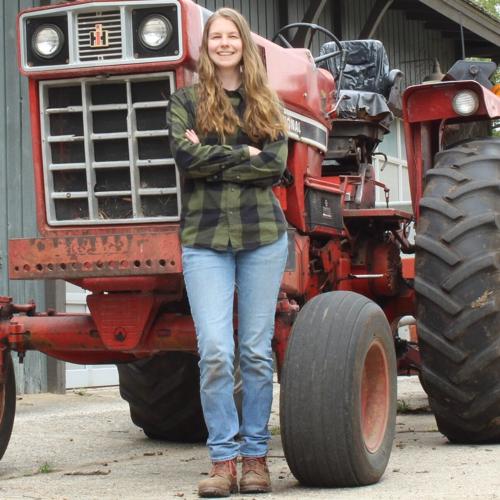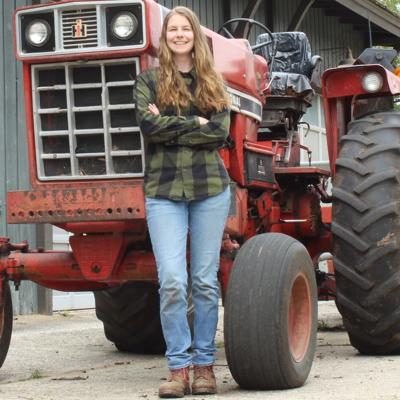
The season of farmers markets is fast approaching, and local farms and businesses are eager to sell their products to excited customers. Whether you’re selling or purchasing edible goods, it is important to be aware of the rules in place to protect consumers, even at your local farmers market.
There are three overall categories of food sold at farmers markets. The first category contains food items made in a facility that is licensed and inspected. This can contain fresh produce as well as value added products. Produce farms may have been inspected by the Michigan Department of Agriculture and Rural Development produce safety inspectors, while the food retail license may be conducted by MDARD or the local health department. These businesses can sell to restaurants and distributors in addition to selling directly to consumers. The second category includes homemade food items that were made in a facility or kitchen that is not licensed and inspected. Certain foods are approved for sale without food licenses or inspections, and this is called “Cottage Food.” The third category is fruits and vegetables from a farm that was not inspected by MDARD produce safety inspectors. Fruits and vegetables can be sold directly to consumers without regular produce safety inspections when the annual gross sales of the farm is below $600,000 — among other factors.
Cottage Food
The Michigan Cottage Food Law permits the sales of select types of non-potentially hazardous foods that were cooked in a home kitchen. Non-potentially hazardous means time and/or temperature controls are not required to assure food safety, meaning the foods can be safely kept at room temperature. A home kitchen means the food products were not made in a commercially inspected facility.
Examples of non-potentially hazardous foods approved to sell as Cottage Food include baked goods, cooked fruit pies, fruit jams and jellies, hard candies, dry herb mixes, popcorn, roasted coffee beans and more. These foods can all be kept at room temperature, and the cooking process is overall low-risk for contamination if the process is completed incorrectly.
Examples of foods that require a license to sell, and are not approved to sell as Cottage Food, include meat and fish products, vegetable jams and jellies, canned or pickled vegetables, canned fruit or vegetable butters, milk and dairy products, all beverages, sauces and condiments, pet food and treats and more. These food items are not approved to sell as Cottage Food because they need temperature or time controls to ensure their safety and stability. For example, incorrectly canned or pickled vegetables can contain botulism, which is an imperceptible toxin that can be deadly.
Please note that these food items can be sold with proper licensing. Licensing and inspections simply ensure the cooking process is done correctly and that consumers are more protected from potential mishaps. Contact MDARD at 517-284-5771 for information on whether your food business requires a license.
Cottage Food can only be sold by the producer directly to the consumer via farmers markets, farm stands and similar venues. Selling to a retailer or distributor for resale, selling to a restaurant for use or sale or shipping products to the consumer is not permitted. The maximum for gross annual sales of cottage food is $25,000.
Cottage Food must be appropriately labeled for sale. The label must include the name of the product, the name and physical address of the home kitchen, the ingredients and sub ingredients, allergen labeling, net weight or volume and the following statement: “Made in a home kitchen that has not been inspected by the Michigan Department of Agriculture and Rural Development.”
This label provides contact information for the consumer in the event there is an issue with the product.
For more information, visit https://www.michigan.gov/mdard/food-dairy/michigan-cottage-foods-information to read Michigan’s regulations on Cottage Food, review the list of approved food items or to contact an MDARD official to answer any questions.
Fresh produce
Selling fresh produce is a staple of a farmers market. Locally grown and in-season produce is an exceptional treat. Did you know that farms selling at markets have to meet labeling requirements? You may have seen these requirements without even noticing.
Many produce farms are inspected by MDARD produce safety inspectors on a regular basis for compliance with the Food Safety Modernization Act Produce Safety Rule, but some produce farms are considered Qualified Exempt, and are not liable for inspection. Qualified Exempt produce farms sell produce directly to consumers and must follow labeling and signage rules when selling fresh produce.
If the produce is packaged and labeled, the label must prominently display the name and complete physical address of the farm where the produce was grown.
If the produce is sold without packaging, you must prominently display the name and complete physical address of the farm where the produce was grown. This can be a sign, poster or on documents delivered with the produce. In the case of internet sales, this notice can be electronic.
This contact information aids the consumer in the event there is an issue with the produce so that the product can be traced back to the source.
Produce farms selling at farmers markets typically want to advertise their business name and address to encourage sales, and those advertisements can satisfy the labeling requirements.























